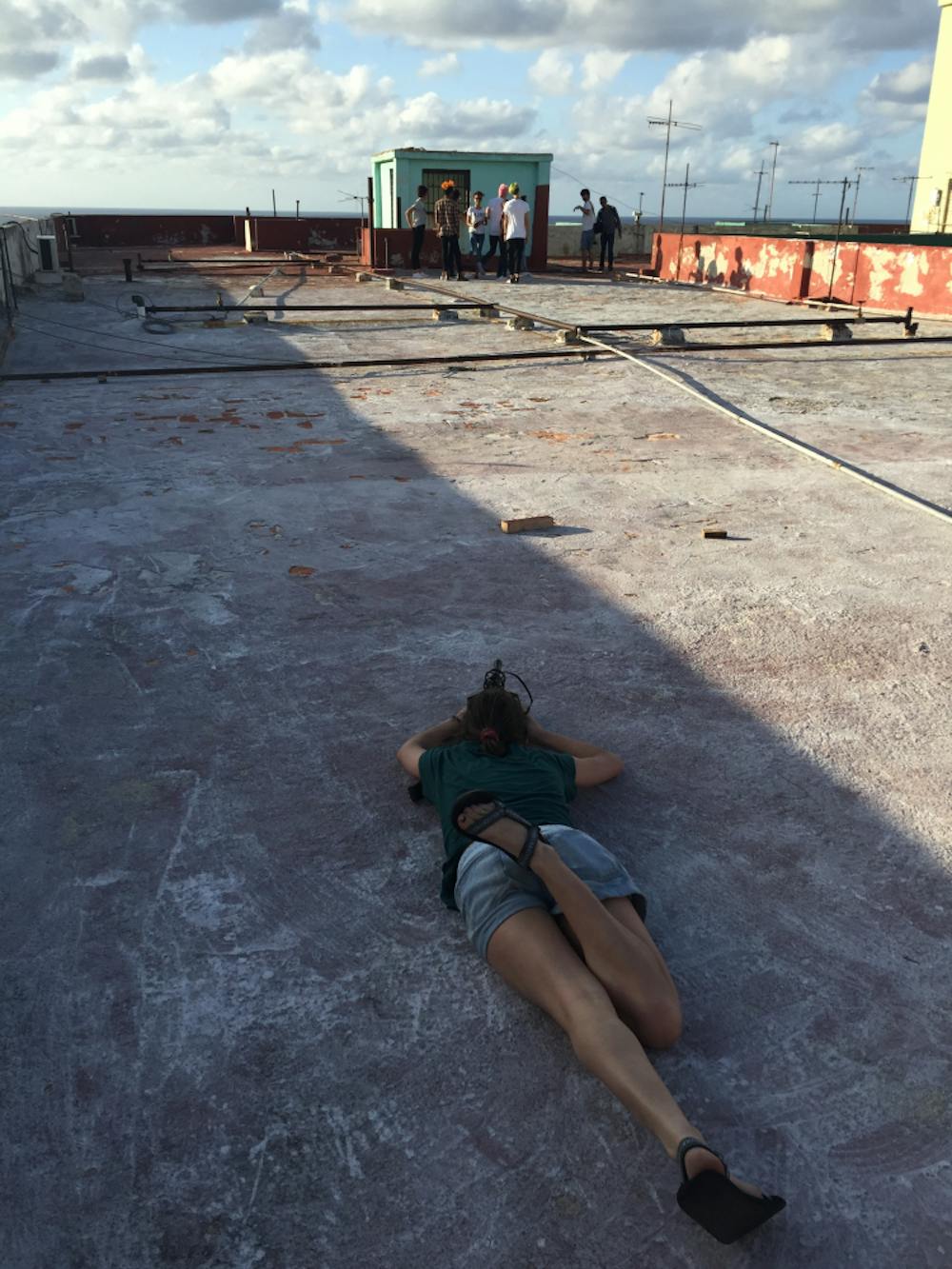“It’s an incredible experience for learning how to actually work in a real-world creative environment, not just isolated as one student doing everything yourself,” said Kate Boyd, a developer for the project.
Preparation for the Trip
Work on Cuba’s New Wave started even before the spring semester did. Davison said the class began with an interest meeting in October 2016, and applications for the class opened in November. By early December, students had been admitted and were meeting within their teams to work on their first assignment.
For Lindsay Carbonell, preparation started two years beforehand. She worked on a similar project for a MEJO 584 class during her sophomore year, but didn’t travel with the group. One of her goals before graduating UNC was to be the lead developer on a future project. She started sketching out ideas for the website’s architecture during winter break before the class.
“Before the course even started, everyone knew that they were gonna be in the class and we had an assignment due for a presentation about Cuba on the first day,” she said. “From the first day, everything that we were doing was directly contributing to the final product.”
Fellow developer Kate Boyd said the development team spent about a month designing the website before setting it up. The development team then traveled to Cuba with the class, but was hampered by the lack of accessible internet in the country.
“The way Cuban internet works is you have to go to like a government office or a park where people are scalping internet cards, and you have to pay for that," she said. "Then you have to go find a spot where you can use that internet, but it’s really slow so it was incredibly hard to be doing any sort of development or computer work."
Once the team returned, they spent hours working together in class and had evening lock-ins where they worked until the early hours of the morning. The project premiered in April.
A Day in the Field in Cuba
Second-year graduate student Veasey Conway worked as a videographer in a team that shadowed a Cuban tour coordinator. His work on the project involved following his subject around all day for days on end.
“To swoop into someone’s life with five journalists tagging along, that’s kind of a lot to ask of people,” he said. “You have to identify with that, but you also kind of have to stress to them and try to get them to understand why you have to tell their story, and why you have to get them waking up and having breakfast, and at the end of the day when they’re really tired.”
Conway said he valued his experiences in the field, as exhausting as they could be. Work days started early and ended late.
To get the day's news and headlines in your inbox each morning, sign up for our email newsletters.
“We would basically wake up, I think before the sun rose, because we had to get across town and take a ferry to get over to where our subject lives, because we wanted to get his morning routine,” Conway said. “His morning routine basically became our morning routine.”
Cubans generally received Conway and his team cordially, a phenomenon Conway attributes to Havana’s high tourist volume, but the group occasionally ran into some trouble.
“Once we were kind of in front of that famous, big portrait of Che [Guevara] that kind of hangs inside of a building, and a couple of — I think they were military — guys started getting freaked out. They thought we were filming them,” he said.
Paul Cuadros said he warned his reporters about potential hesitation from sources due to Cuba’s freedom of expression laws. He said Cuban citizens are restricted in criticizing the government. He taught reporters to be understanding and patient in situations where sources felt uncomfortable.
“We were sort of careful in the questions that we asked, but we were also honest about those questions because we wanted to get responses that were honest,” Cuadros said. “We understood that our sources were essentially engaging in risk by responding to us.”
Conway said one of the most rewarding parts of traveling to and working in Cuba was helping dispel preconceived notions about the country.
“Cuba’s got this aura — it’s almost like in mythology — where everyone kind of has an idea of Cuba in their minds," he said. "It’s important to get beyond that [stereotype] and kind of present a well-trodden story in a new way, and I think we did that by focusing on young people in Cuba in the midst of a lot of change that’s going on in their lives."
Impact of the Project
Cuba’s New Wave is nominated for the David Teeuwen Student Journalism Award for its use of innovative digital storytelling. The award is part of the Online Journalism Awards, which will be held Oct. 7.
“I know that we do journalism for the public good and because we love storytelling," Carbonell said. "But it’s nice to be recognized with a fancy dinner and an award that you can take back to the school."
For Cuadros, the potential for an award feels great, but the once-in-a-lifetime cultural experience is better.
“What stays with me longer is the experiences of having met and spoken with the Cuban people," Cuadros said. "To learn about their culture, to learn about them and to experience their lives in their home country is really eye-opening. Those are the things that are really long-lasting for me.”
university@dailytarheel.com




